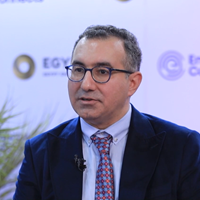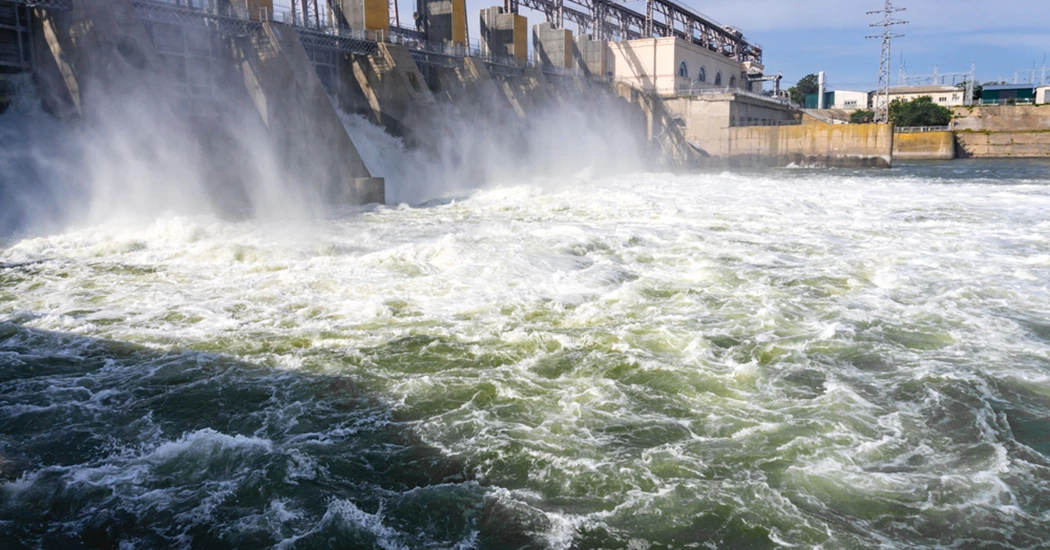Empowering Africa through the water-energy-food nexus: a path to sustainability
The global demand for water, energy, and food is surging at an unsustainable pace, driven by a rapidly growing population expected to reach 9.7 billion by 2050. This escalating demand is placing unprecedented stress on our planet's finite resources, leading to alarming consequences.
By 2030, global water demand is projected to outstrip supply by 40%, exacerbating existing water scarcity issues that already affect over 2 billion people worldwide. Simultaneously, the energy sector, predominantly reliant on fossil fuels, accounts for a staggering 73% of global greenhouse gas emissions, fuelling climate change and its devastating impacts. To meet the food needs of a burgeoning population, agricultural production must increase by 60% by 2050, further straining water resources and intensifying environmental pressures
In the heart of Africa, where the sun beats down on arid plains and the rivers meander through lush valleys, lies a complex and interconnected web: the water-energy-food (WEF) nexus. This intricate dance of resources is not just about data and figures; it's about the lives, hopes, and dreams of millions of Africans.
Imagine a young mother in a rural village, her face etched with worry as she walks miles to fetch water for her family. The nearest river is drying up, the crops are withering, and her children are going hungry. This is not a scene from a distant past; it's a harsh reality for many African families.
The WEF nexus is a lifeline for these communities. It's about ensuring that there is enough clean water for drinking, sanitation, and irrigation. It's about providing reliable and affordable energy to power homes, schools, and businesses. It's about growing enough food to nourish a growing population.
Addressing these challenges individually is like treating the symptoms of a disease without addressing the underlying cause. A holistic approach is needed, one that recognises the interconnectedness of water, energy, and food.
For example, using solar-powered pumps for irrigation can reduce the energy needed to pump water, while also improving crop yields. This, in turn, can lead to better food security and improved livelihoods for farmers and their families.
The numbers tell a story of immense challenges:
- Water: Over 400 million Africans lack access to basic drinking water, and the situation is expected to worsen due to climate change.
- Energy: More than 600 million people in sub-Saharan Africa have no electricity, hindering economic development and quality of life.
- Food: Africa is the continent most affected by hunger, with over 250 million people facing food insecurity.
Despite the challenges, there is hope. Across Africa, communities, governments, and organisations are working together to find innovative solutions. Solar-powered water pumps are transforming agriculture, mini-grids are bringing electricity to remote villages, and climate-smart farming techniques are improving resilience. Furthermore, recent cutting-edge Technologies such as AWEG (Atmospheric Water & Energy Generator) can provide a more resilient alternative for the sustainable future of the continent.
PiKARE's AWEG technology offers a transformative solution to the existing paradox with respect to WEF, particularly in the African context. By harvesting clean water and renewable energy directly from the atmosphere, AWEG creates a closed-loop system that minimises waste and reduces reliance on traditional, emission-intensive resources.
Water: AWEG alleviates water scarcity, a critical issue in many African regions, by providing a reliable and sustainable source of clean water. This reduces pressure on groundwater and surface water resources, enhancing environmental sustainability.
Energy: AWEG's integrated solar power generation not only powers the water extraction process but also provides excess electricity for local communities or industries. This reduces reliance on fossil fuels and promotes clean energy access.
Food: The availability of clean water and energy from AWEG supports agricultural activities, improving food production and enhancing food security in communities.
Circularity in Action: AWEG embodies circularity by minimising waste and maximising resource utilisation. The water produced is used for drinking, sanitation, irrigation, and other purposes, while the excess energy can be stored or fed back into the grid.
AWEG's decentralised nature makes it ideal for deployment in remote or underserved areas in Africa, bypassing the need for costly infrastructure development. This empowers communities with self-sufficiency in water and energy, fostering economic growth and improving livelihoods.
The WEF nexus is not just a theoretical concept; it's a pathway to a brighter future for Africa. It's about empowering communities, protecting the environment, and building a more equitable and sustainable world. It's a testament to the resilience and ingenuity of the African people, who are determined to overcome the challenges they face and create a better future for themselves and their children.
Energy Connects includes information by a variety of sources, such as contributing experts, external journalists and comments from attendees of our events, which may contain personal opinion of others. All opinions expressed are solely the views of the author(s) and do not necessarily reflect the opinions of Energy Connects, dmg events, its parent company DMGT or any affiliates of the same.
KEEPING THE ENERGY INDUSTRY CONNECTED
Subscribe to our newsletter and get the best of Energy Connects directly to your inbox each week.
By subscribing, you agree to the processing of your personal data by dmg events as described in the Privacy Policy.
















